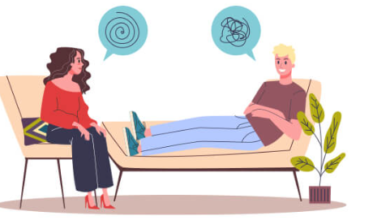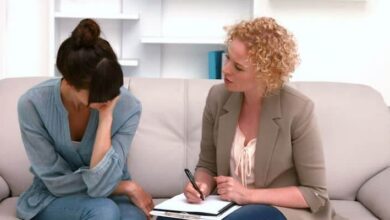A Natural Woman’s Guide to Menopause

The average age for a woman to start menopause is 51, but it can start as early as her late 30s. It’s classified as a retrospective disease. The transition into menopause is marked by a full year without your menstrual period.
It’s an unfortunate reality, but every woman will go through menopause. How you deal with it is up to you. Read this guide on woman’s healthcare advice for menopause and natural remedies.
Knowing the Signs
The time before menopause begins is considered perimenopause. You may easily confuse these symptoms with other diseases, so you should be aware of them.
Symptoms of perimenopause include:
- Faded memory or foggy thinking
- Irregularly timed periods
- Weight fluctuations
- Little interest in intercourse
- Breast tenderness
- Lymph node swelling
- Hair loss
- Headaches and other aching
If you have any of these signs of perimenopause, please see your GP. Making the differentiation can be the difference between life and death. Many of the symptoms mirror those of breast cancer or cognitive disease.
The signs of menopause are similar but have varying severity. These are them:
- Anxiety, mood changes, depression
- Loss of sex drive
- Fatigue, insomnia, and sleep deprivation
- Weight gain
- A racing heart rate
- Breast tenderness
- Thinning hair and loss
- Pubic hair growth
- Hot flashes
If you are experiencing any of the above symptoms and haven’t had your normal period, it’s likely you’ve begun the transition to menopause. But, consult with your doctor to be certain.
Natural Woman’s Healthcare
There’s no subverting the next chapter of your life. There are, luckily, some remedies that can relieve the symptoms.
Living a healthy life is the best remedy for living with menopause. Normal exercise, at least once a day, and a well-balanced diet helps manage the effects of menopause and perimenopause.
If you’re a smoker or a drinker, quit. Symptoms have less effect on a healthy woman.
There are nontraditional methods of treating menopause, but they’re less explored. Meditation and acupuncture are used for stress relief, which will lessen the severity of some symptoms. Some women experiment with concoctions of herbs, supplements, and pellet therapy.
Before devoting yourself to any alternative methods, please consult with your physician.
Accepting Help When You Need It
Some women may not have total success with at-home remedies. If your menopause is severe enough, you should seek medical intervention from professionals.
Hormonal replacement therapy (HRT) is an option that you should explore with your physician. Your doctor may also consider prescribing anticonvulsants or blood pressure meds.
Don’t be afraid to ask for help. Menopause isn’t embarrassing, it’s expected.
Being the Best You
You can’t avoid menopause, but you can ease its symptoms. Following a regiment of a natural woman’s healthcare will bring relief.
You should learn the signs of perimenopause and menopause. Leading a healthy life is your best option to reduce your symptoms. If natural remedies aren’t working, consult with a doctor if your pains are severe.
Are you looking for more relief from menopause? Check out our other articles on natural healthcare.





